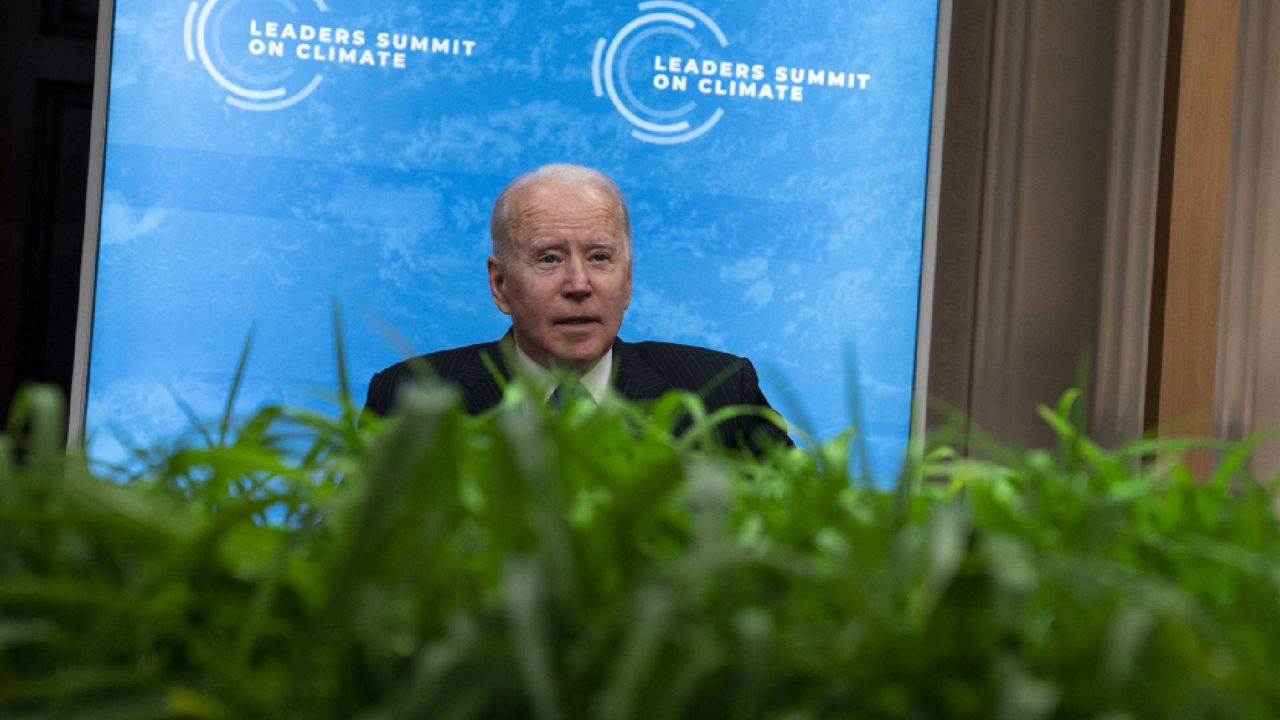President Joe Biden signed an executive order Thursday that calls for a federal review of the financial impact of climate change and includes steps intended to mitigate the monetary risks.
The order directs National Climate Advisor Gina McCarthy and Director of the National Economic Council Brian Deese to conduct a government-wide analysis of “climate-related financial risk to government programs, assets, and liabilities,” according to a White House fact sheet.
“The touchstone of this executive order is that climate risk is financial risk,” National Economic Council Director Deese told reporters Thursday.
The review will be based on a U.S. goal of achieving net-zero emissions by 2050 with a focus on jobs and climate mitigation, especially in disadvantaged communities and communities of color.
“The President understands that this is not about the planet. It's about people,” said McCarthy Thursday. “It means that Americans should be able to know the real risks that extreme weather and rising seas pose to the homes that they've invested in or the small businesses that they’ve built up. It means that their hard earned retirement shouldn't be wiped out by the impacts of climate change.”
The directive is a change in priorities from the Trump administration, which rolled back several actions intended to mitigate climate change.
President Biden’s Thursday order also calls on Treasury Secretary Janet Yellen to look at the environment-related risks to the stability of the U.S. economy. Yellen told reporters Thursday that she plans to publish a report later this year.
“A critical task is pulling together individual agency perspectives to assess how climate risks may impact the stability of the entire financial system,” she said. “Our future livelihoods depend on the financial sector to build a more sustainable and resilient economy.”
The order also directs Labor Secretary Marty Walsh to review and get rid of existing rules that prevent companies from considering the environmental risks of pension and 401(k) retirement investments.
“I've talked to workers whose pensions were put at risk by factors beyond their control,” Walsh said. “Our commitment is to support the workers and their families, now and for years to come. And this executive order is an important step forward, to help us do just that.”
NEC Director Deese said Thursday that the order is partly a signal to other countries around the world about how the U.S. is paying attention to climate change.
“Having the United States signal clearly that this is the policy and the direction of where our financial regulatory architecture and our financially-oriented federal government programs are going is an important element of bringing global harmonization,” Deese said.
Finally, the order also asks federal suppliers to disclose their greenhouse gas emissions and climate-related risks, plus it directs the Office of Management and Budget to evaluate how climate will impact the budget.
National Climate Advisor McCarthy said Thursday that the order is an effort to build toward a norm that encourages companies to be environmentally sustainable, starting with those that supply the U.S. government.
“This cannot be optional. The stakes are simply too high,” she said. “The federal government has to lead by example in its own operation.”
